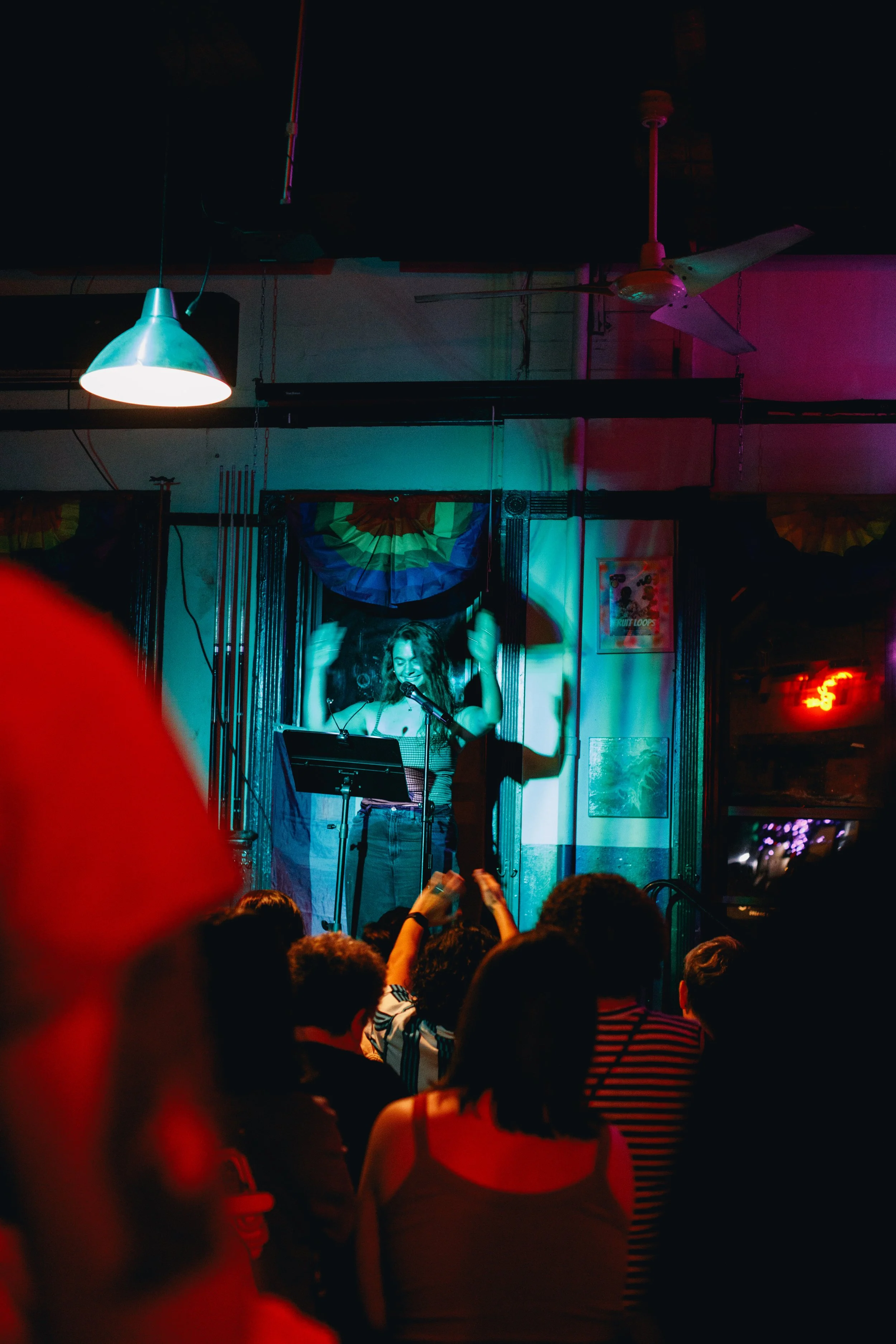Keynotes & Talks
I offer a dynamic range of presentations and workshops grounded in both lived experience and professional expertise. My work bridges themes of health, patient advocacy, grief, aging, and LGBTQ+ identity.
Past speaking engagements include the United Nations, International Federation on Ageing, SAGE, HelpAge International, the International Lesbian, Gay, Bisexual, Trans and Intersex Association (ILGA), and other global and community-based forums.
The core offerings listed below provide a starting point, but each session is thoughtfully tailored to your organization’s unique goals and audience. If you're exploring a specific theme or need a custom session, I’m happy to collaborate and co-create content designed just for your audience.
Core Offerings
-
This session explores the complex intersections of aging, LGBTQ+ identity, and illness.
Participants will examine:The unique challenges LGBTQ+ elders face, including health disparities, social isolation, and systemic discrimination
Intersectional frameworks for understanding aging in queer and trans communities
Practical strategies for building resilience, accessing affirming care, and navigating support systems
Ideal for healthcare providers, community organizations, aging services, and advocacy groups working to create more inclusive and responsive care for LGBTQ+ older adults
-
As someone living with Ehlers-Danlos Syndrome (EDS) and peripheral neuropathy, I know firsthand what it means to spend years navigating a healthcare system that often overlooks, misunderstands, or even dismisses rare disease patients.
We’ll talk honestly about what it takes to be your own self-advocate when the systems around you aren’t built to support rare or complex conditions. We’ll also address the widespread issues of misdiagnosis and pathologization, which disproportionately affect women, people of color, and LGBTQ+ individuals, adding extra layers of challenge to an already difficult journey.Whether you’re newly diagnosed or have been living in this space for years, you’ll leave with tools, strategies, and real-world insight you can use right away.
In this session, we’ll explore:
How to advocate for yourself in medical settings — even when you're not being taken seriously
The emotional and physical toll of rare disease "medical gaslighting" — and how to protect yourself
Ways to clearly communicate your needs to doctors, specialists, and care teams
Building a personal network of support (medical, emotional, logistical)
Storytelling as advocacy: how your lived experience can drive awareness, research, and funding
Tapping into existing rare disease communities and advocacy orgs and knowing where to start
How to use small actions to make a big difference, from the exam room to the policy level
Who This Is For:
This is a space for rare disease patients, caregivers, and allies — especially those who’ve felt isolated, dismissed, or exhausted by the advocacy work that’s often necessary just to receive basic care. We pay special attention to the experiences of women, people of color, and LGBTQ+ persons who face additional barriers through misdiagnosis and pathologization. Whether you’re looking for language, validation, or a place to be heard, you’re welcome here. -
This workshop creates a compassionate space to explore the realities of grief and loss.
This session is for anyone who wants to better understand grief—whether you’re navigating your own loss, supporting a loved one, or working in caregiving or community roles.
Understand the history and cultural context of grief — Explore how different cultures have approached grief and mourning throughout history and today.
Learn about diverse experiences of grief — Identify various types of grief, including anticipatory grief (before a loss) and disenfranchised grief (grief that is not recognized or supported by others) .
Recognize how grief impacts the body and mind — Discover common physical, emotional, and mental effects of grief, including stress responses and physiological implications.
Gain practical coping strategies — Learn simple, effective ways to care for yourself during grief, including self-compassion and healthy habits.
Develop skills to support others who are grieving — Practice compassionate communication and ways to be present for friends, family, or clients experiencing loss.
Discover meaningful rituals and practices — Explore rituals and personal practices that help honor memory, create connection, and foster healing.
-
Donor conception and the use of gestational carriers are often framed as clinical or logistical decisions, but their implications are lifelong and deeply relational.
Drawing from my personal experience as a donor-conceived individual and my professional expertise, this talk explores:Best practices for early and transparent disclosure to children born through donated eggs, sperm, or embryos and/or gestational carriers
The psychological and cultural impact of discovering donor origins later in life
Key considerations in donor selection for LGBTQ+ families, including navigating donor agreements and contracts
Strategies for thoughtfully integrating donor ancestry into family identity, especially across cultural, ethnic, or religious differences
Emotional challenges faced by non-biological parents and guidance for strengthening familial bonds
Navigating honest conversations about donor relationships, boundaries, and evolving family dynamics
This session equips providers and families with language, tools, and ethical frameworks to approach donor conception as an evolving process rooted in care, transparency, and trust.
-
Reproductive grief—whether from miscarriage, stillbirth, infertility, or pregnancy while managing chronic illness—is often invisible and silenced, leaving patients isolated and providers underprepared.
This talk addresses:The reality that loss is not a detour but a part of the fertility journey, reshaping hope and expectations
Support for families experiencing miscarriage, stillbirth, or neonatal loss, including creating meaningful rituals (memorial services/ naming ceremonies/ commemoration ceremonies)
The emotional complexity of pursuing pregnancy while living with serious illness or medical trauma
Strategies for facilitating honest conversations about death, loss, and mourning, including supporting families discussing pregnancy or sibling loss with children
By naming and normalizing these experiences, this talk offers frameworks for deeper empathy, improved communication, and truly holistic fertility care.
-
These interactive workshops help queer elders and community members capture and preserve their stories with intention and care. Through guided prompts and creative techniques, participants will:
Document life experiences and family histories
Create meaningful legacy projects for loved ones
Preserve cultural memory and affirm identity
Build storytelling skills to share personal and collective narratives
Ideal for individuals and organizations committed to honoring histories that are too often overlooked or erased.
